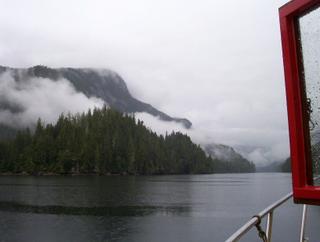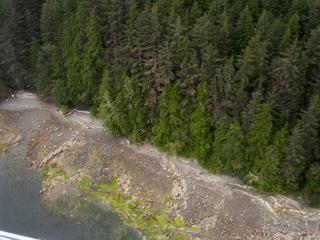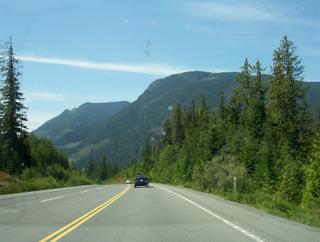OK, Irina tagged me to do this. How this works - bold I've read it, italic I've read some of it, no highlighting means I've never cracked it open.
#1 The Bible
I read the whole thing when I was eight or so. We were in no way religious, but it was there, and so I read it. It is, if you think about it, a very impressive literary work (well, except for the many begats in Chronicles and a few other dry spots.) The King James translation is, even while only being a translation, one of the most influential works of the English language. I've re-read it a couple of times over, I'd wager.
#2 Huckleberry Finn by Mark Twain
Loved it. Jim 'n Huck – never even noticed the politics, other than being aware of the use of some bad words, for me it was all about being friends. I loved the colourful characters too – the guy who sold the enamel-removing tooth powder. :-)
#3 Don Quixote by Miguel de Cervantes
Read a little, remember even less.
#4 The Koran
I've read most of it, obviously not in Arabic. My brother has a copy, and between his place and online, I've probably read most of the Suras. It could be the quality of the translations, I suppose, but I found the Quran to have considerably less oomph than some of the other religious texts I've read. Its creation narrative, with Iblis told to bow before Adam, it just seems a lot drier and less theologically potent – not to mention less rich in mythology – than Genesis.
#5 Arabian Nights
On the other hand, Arabian Nights seemed very powerful to me, mythologically speaking, with jinn and flying carpets, and what have you. But I didn't get very far with it. I didn't own a copy, just read it at someone's house for a few minutes.
#6 Tom Sawyer by Mark Twain
Surprisingly, did not enjoy this quite as much as Huckleberry Finn. But I did enjoy it – how could you not?
#7 Gulliver's Travels by Jonathan Swift
Delightful as both a childhood read, and when I re-read it as an adult. As a child, the story of a man become a giant, and then become a mouse inspired me to daydream about both circumstances. I learned to do camera tricks (simple special effects) where I'd get my brother to pose for in which I made him seem either very large or very small.
As an adult, I loved the cynical appraisal of human beings the book offered. The way the Houyhnhnms looked at the strange and oddly behaved human beings digging for shiny things made me think of how truly strange we really are, doing much of what Swift describes, just with a slightly more civilized veneer over it.
#8 Canterbury Tales by Geoffrey Chaucer
Some people remember the inspiring and profound tales the pilgrims tell each other. I can only remember the Miller's tale. :-)
#9 Scarlet Letter by Nathaniel Hawthorne
Never read it.
#10 Leaves of Grass by Walt Whitman
This either.
#11 Prince by Niccolò Machiavelli
We had to read this for Political Science class. To tell you the truth, I don't remember too much about it, other than that it basically lived up to the word that sprung from it.
#12 Uncle Tom's Cabin by Harriet Beecher Stowe
Never read it.
#13 Diary of a Young Girl by Anne Frank
You know – I've seen her house in the Netherlands, and I know her basic story, but I have never read her diary. I can't explain why not – I've just never had the chance.
#14 Madame Bovary by Gustave Flaubert
Nope!
#15 Oliver Twist by Charles Dickens
I enjoyed it to a point, but I wondered sometimes if Dickens wasn't simply being cruel to his literary creations. How could anyone suffer so much?
#16 Les Misérables by Victor Hugo
One of the most touching things I have ever read. A treatise on love, set in an age where the ideas of hardened hearts trumped love. I felt awful for Javert, but his end was needless. Valjean's life is the proof that you can be redeemed anything.
#17 Dracula by Bram Stoker
Loved it. Delightfully gothic. If it is stereotypical, it is only because it defined the stereotype.
#18 Autobiography by Benjamin Franklin
Nope.
#19 Tom Jones by Henry Fielding
We had it, but I never read it.
#20 Essays by Michel de Montaigne
Nope.
#21 Grapes of Wrath by John Steinbeck
My mother used to complain I made the yard look like the Jodes yard. :-)
#22 History of the Decline and Fall of the Roman Empire by Edward Gibbon
I've read a lot of history regarding the Romans. My mother was a teacher, and we had dozens of history books, including this was one of the many she had that I read.
#23 Tess of the D'Urbervilles by Thomas Hardy
This and Jude the Obscure are so... depressing. Nonetheless, both were beautifully conceived stories, and you never feel, as you do with Dickens, that the author is deliberately torturing the characters! (Well, OK – little Jude's actions might seem that way.) You can tell which of Hardy's stories struck me more, eh?
#24 Origin of Species by Charles Darwin
I've not only read this, but how it came about. Darwin was such a timid soul, and it is astonishing that he would coerce himself into publishing a work this bold. However, his timidity does show through in how he words his boldest assertions - “Light will be thrown on the origin of man and his history” is all he dares say of human beings. His last chapter, “Conclusion and Recapitulation” almost apologizes for delivering the theory!
#25 Ulysses by James Joyce
Nope.
#26 Decameron by Giovanni Boccaccio
Nope.
#27 Animal Farm by George Orwell
Yep. I always tried to figure out which farm animal was who, related to Red October.
#28 Nineteen Eighty-Four by George Orwell
Of course. I'm always wary whenever anything in the modern world echoes this work. Despite its quaint imaginings of what later technology there'd be for Big Brother's supervision, 1984 has the potential to be prophetic, and most of us realize that.
#29 Candide by Voltaire
Nope.
#30 To Kill a Mockingbird by Harper Lee
Yep.
#31 Analects by Confucius
No.
#32 Dubliners by James Joyce
No.
#33 Of Mice and Men by John Steinbeck
No.
#34 Farewell to Arms by Ernest Hemingway
Yep.
#35 Red and the Black by Stendhal
No.
#36 Capital by Karl Marx
Yes, we had to for political science class. While he does shoot some holes in the idea behind capitalization by pointing out how it really adds no value (some today would say its just a higher form of gambling really), the shoddy working conditions of the 19th century blinded Marx to the possibility that while, yes, labourers may do all the work, it is possible to compensate them justly without throwing the baby out with the bathwater. Technological advancement, in particular, depends on capitalization.
#37 Flowers of Evil by Charles Baudelaire
No.
#38 Adventures of Sherlock Holmes by Sir Arthur Conan Doyle
No, though I did read Agatha Christie.
#39 Lady Chatterley's Lover by D. H. Lawrence
We had this on the shelf when I was a kid, and I read it at far too young an age, I suppose. I really didn't think too much of it, truthfully. I found the gardener crude and unappealing, and not gruff in a Heathcliff kind of way. I'm much more enamoured Lawrence's poetry.
#40 Brave New World by Aldous Huxley
Though I don't remember a thing about it. I read so much when I was young!
#41 Sister Carrie by Theodore Dreiser
No.
#42 Gone with the Wind by Margaret Mitchell
Saw the movie, never read the book.
#43 Jungle by Upton Sinclair
No.
#44 All Quiet on the Western Front by Erich Maria Remarque
Yep.
#45 Communist Manifesto by Karl Marx
Boy I hated Political Science.
#46 Lord of the Flies by William Golding
The very first Reality TV show (only in book form.) I don't think he really describes the human condition – I don't accept the argument that we're that base when civilization is removed from us.
#47 Diary by Samuel Pepys
Nope.
#48 Sun Also Rises by Ernest Hemingway
We had it. Never read it.
#49 Jude the Obscure by Thomas Hardy
See earlier.
#50 Fahrenheit 451 by Ray Bradbury
Never got too far with this.
#51 Doctor Zhivago by Boris Pasternak
Nope.
#52 Critique of Pure Reason by Immanuel Kant
Had this in philosophy class.
#53 One Flew Over the Cuckoo's Nest by Ken Kesey
Never got far with it.
#54 Praise of Folly by Desiderius Erasmus
Nope.
#55 Catch-22 by Joseph Heller
Nope.
#56 Autobiography of Malcolm X by Malcolm X
“We didn't land on Sherwood Forest! Sherwood forest landed on us!” (Apologies to Mel Brooks.)
#57 Color Purple by Alice Walker
Nope.
#58 Catcher in the Rye by J. D. Salinger
Would you believe... no?
#59 Essay Concerning Human Understanding by John Locke
Yes.
#60 The Bluest Eye by Toni Morrison
No.
#61 Moll Flanders by Daniel Defoe
No.
#62 One Day in the Life of Ivan Denisovich by Aleksandr Solzhenitsyn
No.
#63 East of Eden by John Steinbeck
No.
#64 Invisible Man by Ralph Ellison
No. I guess I was disappointed when it didn't turn out to be as cool as the TV series about the invisible guy with the watch! ;-)
#65 I Know Why the Caged Bird Sings by Maya Angelou
No.
#66 Confessions by Jean Jacques Rousseau
No.
#67 Gargantua and Pantagruel by François Rabelais
No.
#68 Leviathan by Thomas Hobbes
No.
#69 The Talmud
Having never been to Rabbinical school or seminary, I think this one too weighty to take on without help. :-)
#70 Social Contract by Jean Jacques Rousseau
No.
#71 Bridge to Terabithia by Katherine Paterson
No.
#72 Women in Love by D. H. Lawrence
No.
#73 American Tragedy by Theodore Dreiser
No.
#74 Mein Kampf by Adolf Hitler
Our school library had it. One day I was wandering by the shelves, and there it was. I picked it up. What an odious psychotic work! I still feel dirty...
#75 A Separate Peace by John Knowles
No.
#76 Bell Jar by Sylvia Plath
No.
#77 Red Pony by John Steinbeck
No.
#78 Popol Vuh
Uh-uh. Nope.
#79 Affluent Society by John Kenneth Galbraith
Some of it.
#80 Satyricon by Petronius
Nope.
#81 James and the Giant Peach by Roald Dahl
Saw the stop motion film. ;-)
#82 Lolita by Vladimir Nabokov
Never read it. As a guy, you'd probably be suspect if you were seen reading it. It has that stigma. I did see a friend who was in a play of it though. She was the mother Humbert Humbert married.
#83 Black Boy by Richard Wright
No.
#84 Spirit of the Laws by Charles de Secondat Baron de Montesquieu
No.
#85 Slaughterhouse Five by Kurt Vonnegut
No.
#86 Julie of the Wolves by Jean Craighead George
Never heard of it.
#87 Metaphysics by Aristotle
Nope.
#88 Little House on the Prairie by Laura Ingalls Wilder
About half of it.
#89 Institutes of the Christian Religion by Jean Calvin
No. I am not a Calvinist, and the religious wars of Europe were some of the bloodiest years in history.
#90 Steppenwolf by Hermann Hesse
nope.
#91 Power and the Glory by Graham Greene
nope.
#92 Sanctuary by William Faulkner
nope.
#93 As I Lay Dying by William Faulkner
Nope.
#94 Black Like Me by John Howard Griffin
Yep. I never got why this was controversial. His awkward experiment may have been in slightly poor taste, but it was one of the first real attempts by an American caucasian to put himself in the shoes of the other. It was a brave endeavour, and a compassionately written telling.
#95 Sylvester and the Magic Pebble by William Steig
Never heard of it.
#96 Sorrows of Young Werther by Johann Wolfgang von Goethe
Nope.
#97 General Introduction to Psychoanalysis by Sigmund Freud
Much drier than I expected. Doesn't read like quackery. Reads like a sleeping pill. :-)
#98 Handmaid's Tale by Margaret Atwood
Very dark and dreary in Atwood's usual style, but still very compelling.
#99 Bury My Heart at Wounded Knee by Dee Alexander Brown
I know I read this, but I remember nothing of it.
#100 A Clockwork Orange by Anthony Burgess
Nope.
#101 Autobiography of Miss Jane Pittman by Ernest J. Gaines
Nope.
#102 Émile by Jean Jacques Rousseau
Nope.
#103 Nana by Émile Zola
Nope.
#104 Chocolate War by Robert Cormier
Nope.
#105 Go Tell It on the Mountain by James Baldwin
I thought that was a hymn?
#106 Gulag Archipelago by Aleksandr Solzhenitsyn
Nope.
#107 Stranger in a Strange Land by Robert A. Heinlein
Yep.
#108 Day No Pigs Would Die by Robert Peck
Nope.
#109 Ox-Bow Incident by Walter Van Tilburg Clark
Never heard of it.
#110 Flowers for Algernon by Daniel Keyes
Nope.










